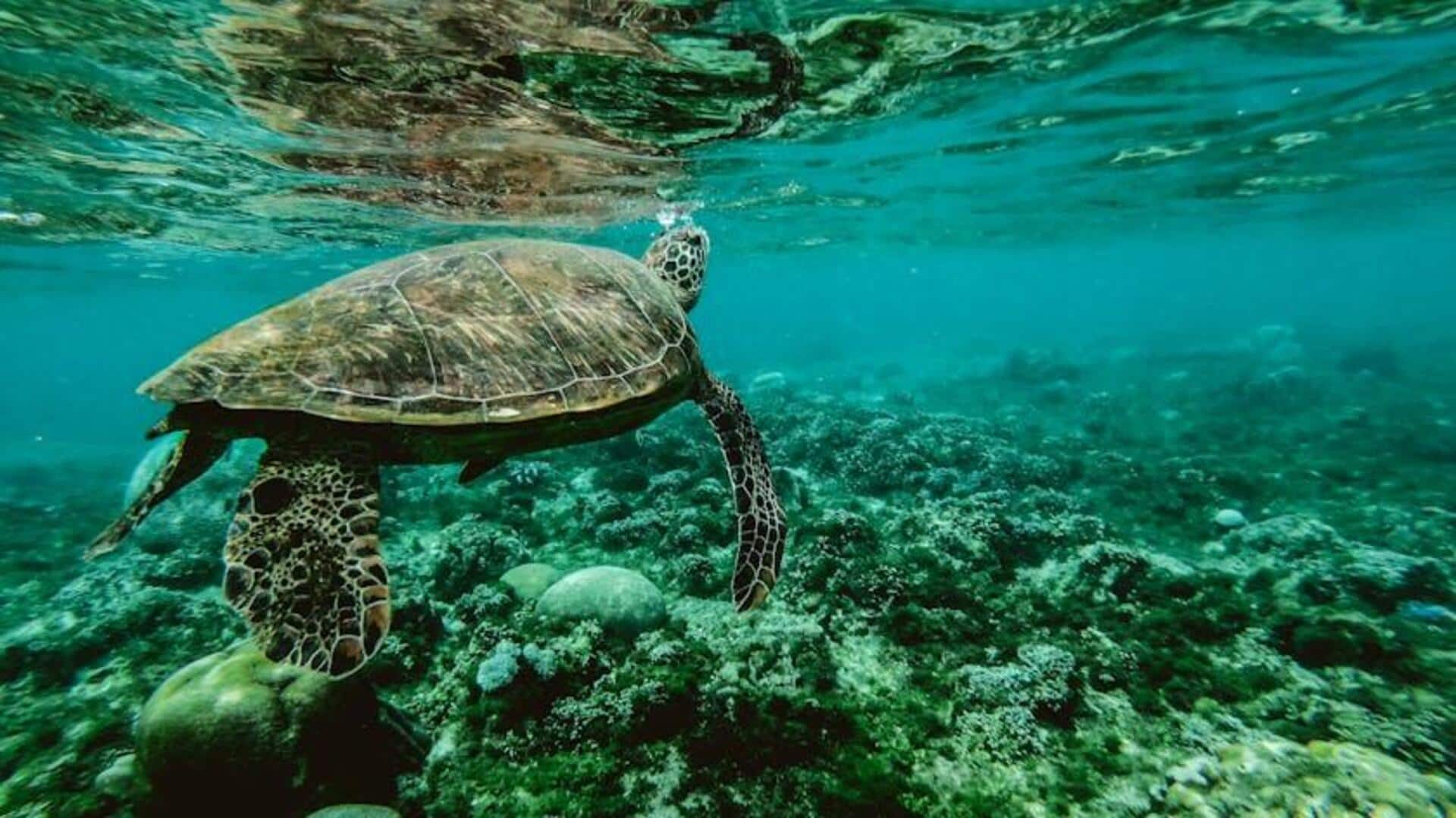
Curious about underwater life? Here's an interesting read
What's the story
Discovering the deep ocean is like visiting an alien world.
The discovery dives around hydrothermal vents take you to witness ecosystems that thrive in extreme conditions, far removed from sunlight.
These expeditions uncover strange life forms and geological wonders, shedding light on the resilience of life and contributing to our understanding of Earth's biodiversity.
Preparation
Preparing for your dive
Before you can dive into the deep sea to discover hydrothermal vents, you need to undergo rigorous training.
Divers need to master the use of sophisticated diving equipment specifically designed for deep-sea exploration. These include submersibles or remotely operated vehicles (ROVs).
Strict safety measures are crucial. The extreme depths mean high pressures and frigid temperatures, making any mistakes potentially life-threatening.
Science
The science behind hydrothermal vents
Hydrothermal vents are found along mid-ocean ridges where tectonic plates separate or collide.
Water that seeps into the crust is superheated by magma, and then it shoots back up through vents, carrying dissolved minerals that build up into vent chimneys.
They sustain entire ecosystems of weird and wonderful life. These critters don't rely on photosynthesis, but on chemosynthesis. Bacteria use chemicals, such as hydrogen sulfide, to produce organic matter.
Life forms
Discovering alien life forms
The ecosystems surrounding hydrothermal vents harbor some of Earth's most alien-like creatures.
Species like giant tube worms (growing up to two meters long!), eyeless shrimp, and various extremophiles have evolved to not just survive, but thrive in this harsh environment.
These organisms offer a glimpse into the extreme limits of life on Earth, and perhaps even a peek into the potential for life on other planets.
Conservation
The importance of conservation
Deep-sea mining represents a major threat to the survival of hydrothermal vent ecosystems.
Mining for minerals deposited by vents can destroy habitats and put unique species - that exist nowhere else on Earth - at risk.
Conservation efforts aim to create marine protected areas (MPAs) around these unique ecosystems, preserving them for future research and exploration.
Tips
Tips for aspiring explorers
If you are keen on joining a deep ocean vent discovery dive, start by mastering the basics of scuba diving. Then, slowly progress to technical diving certifications.
Consider attending workshops or courses in marine biology or geology to gain a deeper understanding of the environments you wish to explore.
And, most importantly, always prioritize safety and environmental preservation during your dives.